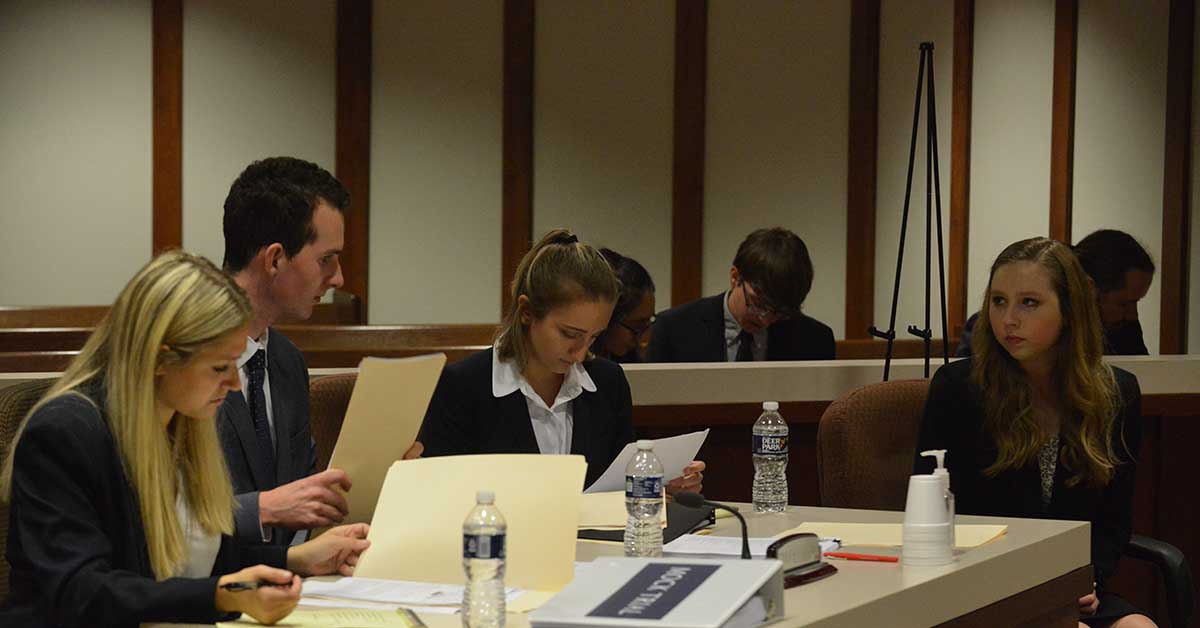REQUIRED CORE
Take the following courses:
SO-101 Introduction to Sociology
3 CreditsS
CJ-260 Introduction to Criminal Justice
3 CreditsS
SO-302 Social Deviance and Criminology
3 CreditsSPrerequisites: SO101 or AN151.
ELECTIVES
Take 9 credits from the following courses:
PS-190A Mock Trial
3 CreditsCS
PS-190B Mock Trial
1 CreditCS
EN-239 Bloody Murder
3 CreditsH
HS-400 Crimes Against Humanity
4 CreditsI, HPrerequisites: Junior or Senior standing. Sophomores require permission.
PACS-105 Introduction to Conflict Resolution
3 CreditsS, WK-SIPrerequisite or Corequisite: FYC-101
PACS-110 Introduction to Peace & Conflict Studies
3 CreditsI,SWGH2Prerequisite or corequisite: FYC or CWS
PL-106 Introduction to Ethics
4 CreditsH,SW-ER
PS-218 Public Policy & Admin.
3 CreditsSPrerequisite: PS101.
PS-312 Constitutional Interpretation: Civil Rights
4 CreditsH, CWPrerequisites: PS101 or permission.
PS-334 Human Rights
3 CreditsI, SPrerequisite: PS102.
PY-203 Abnormal Psychology
3 CreditsSPrerequisite: PY101.
PY-205 Social Psychology
3 CreditsS
PY-410 Aggression and Prejudice
3 CreditsS, CS
SO-203 Minority Experiences
3 CreditsSPrerequisites: SO101 or AN151.
SO-244 Drugs and Society
3 CreditsSPrerequisites: SO101.
SO-320 Wealth, Power, & Society
3 CreditsS, CWPrerequisites: SO101 and Sophomore, Junior, or Senior standing.
CJ-362 Juvenile Justice
3 CreditsCW, S, SW-ERPrerequisite: FYC-101
Secondary Emphasis Credit Total = 18
Six credits must be at the 300/400-level. Any course exception must be approved by the advisor and/or department chair.
 skip to content
skip to content




